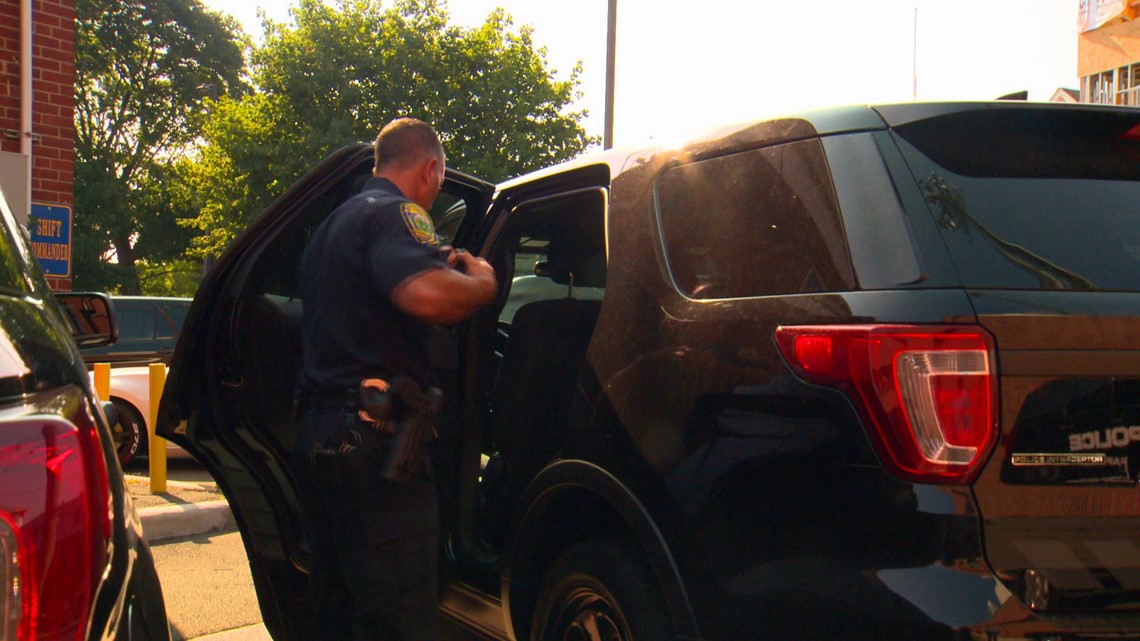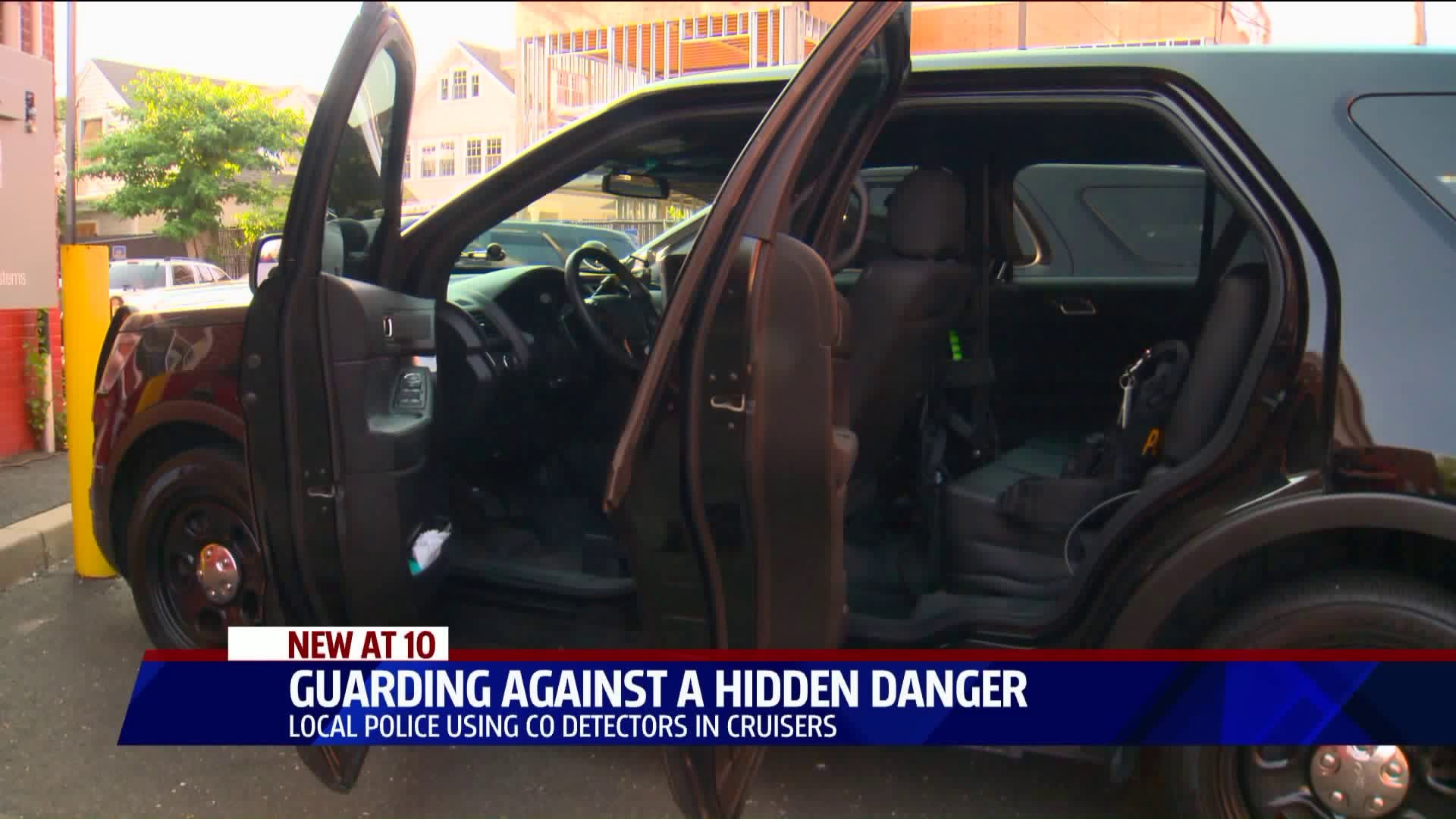FAIRFIELD -- Police officers across the country have been passing out behind the wheel of Ford Police Utility Vehicles because of carbon monoxide poising.
The latest case was this week in Auburn, Mass. near Worcester.
Last week, the city of Austin, Texas, pulled all 446 Ford Explorers from its police fleet after detecting potentially dangerous levels of carbon monoxide in the vehicles.
The Fairfield Police Department doesn't want to wait and see if they have this problem.
"We just used this precaution to make sure that our officers are safe inside the vehicle.," says Lieutenant Robert Kalamares.
His entire fleet of Ford police utility vehicles are equipped with a carbon monoxide detector.


"Once we started getting the reports of it, it was like, let's stay ahead of the curve. You know we don't want to get our officers hurt," says Kalamares.
It's a measure that protects the department's greatest asset--it's officers.
"The most important thing we want to make sure is that our officers are safe," says Kalamares. "They're responding to emergency calls we want to make sure they get there safe and come home safe."
"We are going to remove the Ford Explorer from the city's fleet, which comprises a large majority part of the APD patrol fleet," Austin Chief Brian Manley said.
The Austin Police Department has experienced carbon monoxide issues over the past five months, he said. In that time, 62 workers' comp reports have been filed by officers for exposure to carbon monoxide. And 20 of those officers had a measurable level of carbon monoxide in their system when they were tested, Manley said. Three of them have not returned to work.
The Explorers will be stored until the National Highway Traffic Safety Administration (NHTSA) and Ford conclude an investigation into what's wrong with the cars -- and figure out a solution.
The decision follows NHTSA's announcement that it has expanded its investigation into 1.3 million 2011-2017 Ford Explorer SUVs over reports of exhaust odors and concerns of carbon monoxide exposure.
NHTSA says that more than 2,700 complaints have been filed by those concerned they've been exposed to carbon monoxide while in the vehicles.
"Safety is our top priority," Ford said in a statement. "We have not found elevated levels of carbon monoxide in regular Ford Explorers. To address police customers who drive modified vehicles in unique ways, we will cover the costs of specific repairs in every Police Interceptor Utility that may have carbon monoxide concerns."
Austin's police department isn't the only one to have been impacted by faulty vehicles. James Thibodeaux, captain of the Henderson Police Department in Louisiana, said one of his officers passed out while driving and crashed after she spent 11 hours in an Explorer.
"She was treated at a nearby hospital and was released the same day," Thibodeaux said. "She had to undergo some oxygen level treatment because her carbon monoxide levels were near fatal 2 hours after the accident."
Some officers are taking their battle against Ford to court. Austin officer Zachary LaHood, said that back in March, he nearly crashed into another car when he was overcome by fumes. A California officer, Brian McDowell, crashed into a tree while driving an Interceptor. LaHood and McDowell are suing Ford over the incidents.
Brian Chase, the attorney representing LaHood, McDowell and a few other officers, said on Friday that he "commend[s] the Austin Police Department for taking the right action and removing those vehicles from the road."
Ford Motor Company released a statement:
"When a police or fire department routinely install customized emergency lighting, radios and other equipment, they have to drill wiring access holes into the rear of the vehicle. If the holes are not properly sealed, it creates an opening where exhaust could enter the cabin."
The company says it will cover the costs of specific repairs in every Police Interceptor that has this problem.

